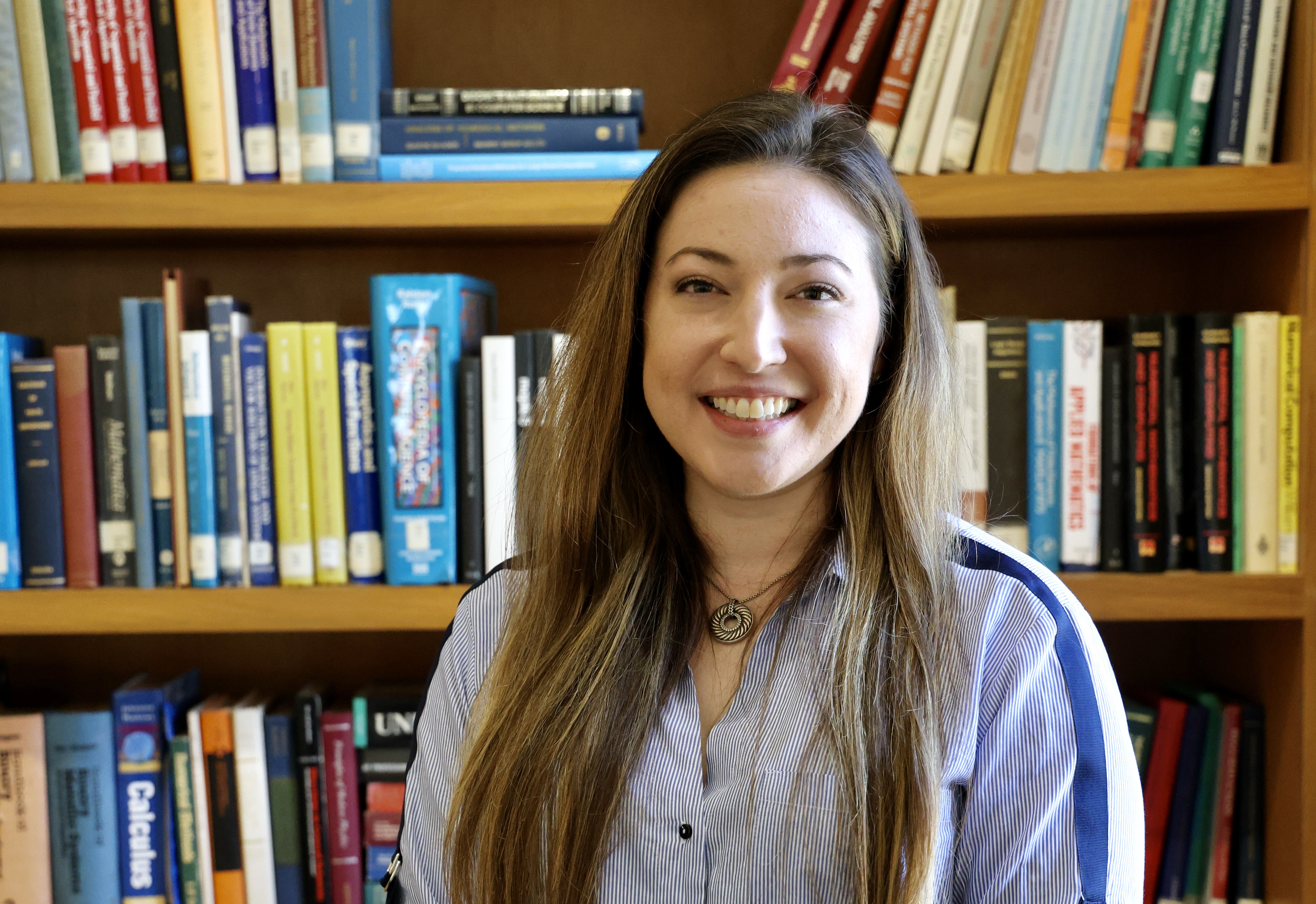Kate Pearce is making waves in mathematics education from within the walls of Lockhart Correctional Facility. A dedicated advocate for diversity in mathematics, the Peter O'Donnell Jr. Postdoctoral Fellow is on a mission to transform the way that incarcerated women who have always considered themselves "bad at math" see both the subject and themselves.
Kate earned her Ph.D. in Applied Mathematics from North Carolina State University researching practical identifiability analysis: a mathematical process to assess whether model parameters can be uniquely determined from available data. This analysis helps researchers know which parameters in a complicated system can be reliably estimated, improving the validity and trustworthiness of their results.
As an O’Donnell postdoc at the Oden Institute for Computational Engineering and Sciences, she works with Per-Gunnar Martinsson, professor of mathematics, on randomized algorithms in numerical linear algebra. Her research accomplishments include the development of efficient error estimation methods for low-rank matrix approximations based on randomized sketching. She is also working on randomized compression of rank-structured matrices encountered in many scientific computing applications, such as sparse direct solvers for PDEs or covariance matrices in statistics.
Kate's dedication to furthering diversity initiatives in the mathematical community was nationally recognized when she received the American Mathematical Society's Catalyzing Advocacy in Science and Engineering (CASE) Fellowship in 2020. She now is a volunteer instructor with the Texas Prison Education Initiative (TPEI) at Lockhart Correctional Facility, where she teaches UT Austin math courses to incarcerated students, who not only have previously struggled with math but now also face the hardships of life behind bars. Her experiences here have provided her with a unique perspective on the transformative power of mathematics and the challenges of teaching within a correctional facility.
Every time Kate navigates the security checkpoints to enter the prison, she is met by women young and old who are eager to learn, demonstrating resilience and hope amid challenging circumstances. Kate's dedication to her students becomes evident from the moment they enter the classroom. She ensures they have the tools they need to learn and creates a positive and supportive learning environment. Her teaching philosophy revolves around building the confidence and problem-solving abilities of her burgeoning mathematicians, instilling a sense of freedom even within the confines of incarceration.
"I think a lot of academics are still seen in that ivory tower," muses the postdoc. "I don’t want to be seen like that at all. I want to be accessible and approachable, especially to my students."
Kate's approach to teaching goes beyond imparting mathematical knowledge: It's about building intuition. She is mindful of her language and explanations, ensuring she avoids triggering mental blocks and creates an environment where students can learn without anxiety. She illustrates the importance of math by providing real-world contexts and emphasizing the value of finding the "right answer" in a world full of problems without clear solutions.
When she's not immersed in research or teaching, Kate channels her creativity into art. She's an avid painter and has augmented her artistic skills with metalworking in the past several years. She finds immense satisfaction in fabricating and welding to create unique sculptural pieces based on mathematical concepts, like Seifert surfaces or dual polyhedra. Kate also plays drums, a hobby she finds to be a great stress-reliever and a refreshing break from the strictures of the academic world.

